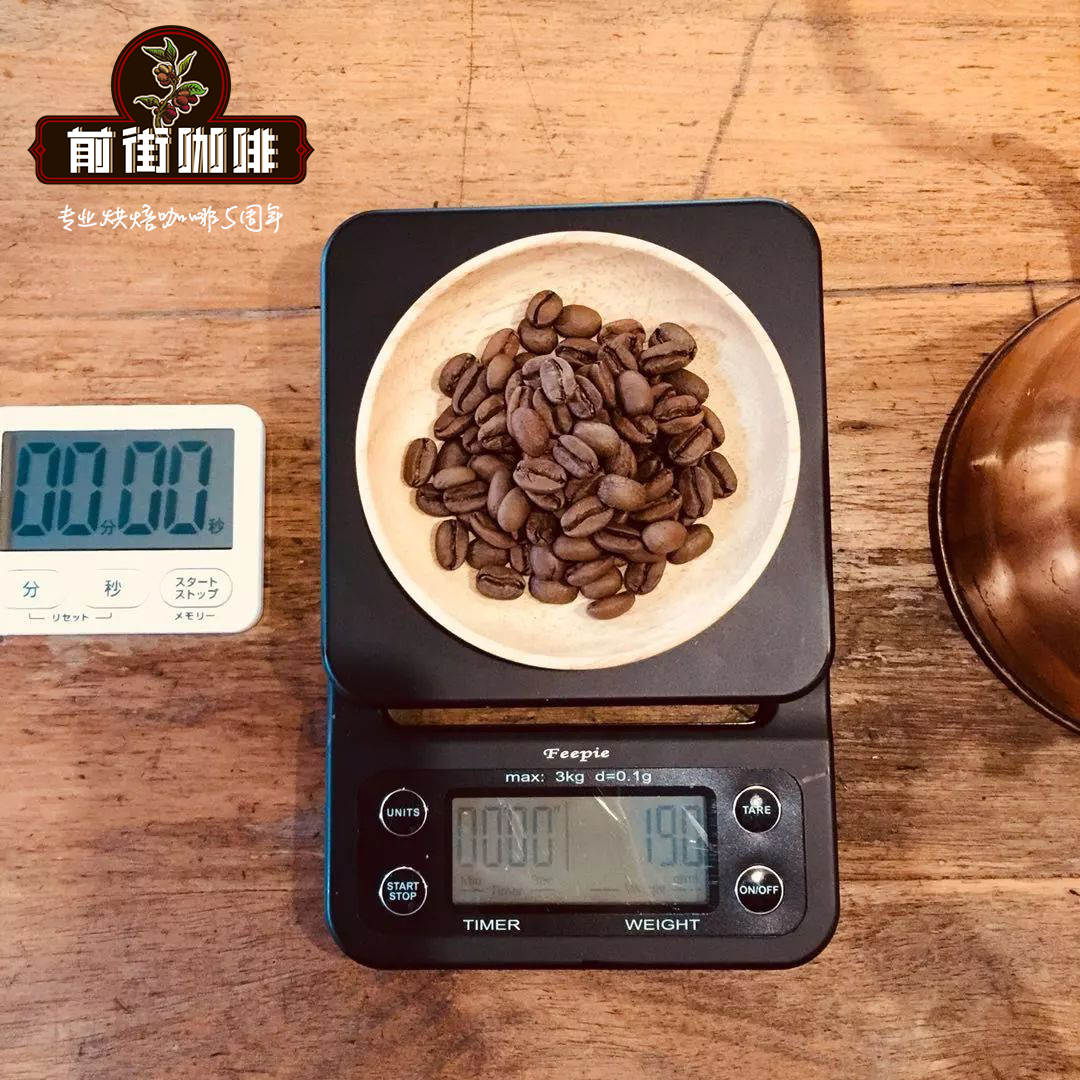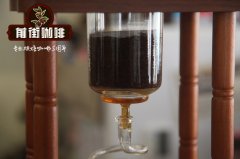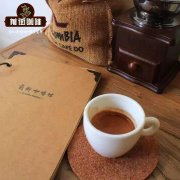Yunnan Coffee What is the story of Yunnan coffee beans development process and the relationship between Nestle Starbucks

Professional coffee knowledge exchange More coffee bean information Please pay attention to coffee workshop (Weixin Official Accounts cafe_style)
For Starbucks, there must be a forward-looking layout for China. Grasp the source (Yunnan coffee), it is possible to support the expansion of the store.
Starbucks announced in mid-November that it would build its own coffee farm in Yunnan, China. This is the first time Starbucks has moved upstream in its 40 years of existence, trying to build a complete industrial chain from coffee beans to stores. Starbucks coffee beans were purchased globally before, and in September 2010, rising ingredients triggered a price increase.
Long before Starbucks, instant coffee giant Nestle had been deeply cultivated in Yunnan for many years, establishing a model of providing technical support to coffee farmers and setting up purchasing points to purchase coffee beans. As Kraft, McDonald's, Pacific Coffee, 85 ° C and other competitors continue to expand their sphere of influence in China, the upstream coffee bean raw materials are becoming the focus of competition.
For the first time in 40 years,"beans"
Starbucks 'soul, chairman and CEO Howard Schultz appeared in Pu' er, Yunnan Province, China in mid-November. Starbucks announced that it is about to start growing its own coffee beans in Yunnan.
In its 40 years of existence, Starbucks has never been involved in coffee cultivation, but has purchased coffee beans on a global scale. Schultz revealed that Starbucks spends 18 weeks a year searching the world for the right coffee beans. He claims that growing his own coffee beans in Yunnan is not about reducing costs.
In fact, Starbucks began exploring the upstream of the industrial chain as early as seven years ago. In Costa Rica and Rwanda, Starbucks has established coffee grower support centers. Starbucks sends technical teams locally to work with farmers to improve coffee quality, yield and reduce costs. Various measures are intended to stabilize upstream supply.
This Yunnan coffee project is unusual. Starbucks not only fills the gap in Asian raw material supply, but also has its own planting base in addition to cooperation with farmers. Starbucks will be sown in Yunnan in 2011, but harvest is still years away.
Starbucks Greater China Communications Department Li Jing told China Business News that Starbucks began experimenting with coffee beans produced in Yunnan as early as 2007. Starbucks 'purchases in Yunnan have increased about 20 times so far.
Li Jing revealed that coffee beans produced in Yunnan are currently shipped to Seattle for roasting and then shipped back to Chinese stores for processing and sales, thus not reducing Starbucks 'costs.
Will coffee roasting plants be built in Yunnan in the future to reduce logistics costs for round-trip transportation? Li Jing said it was too early to discuss the topic, and Starbucks was still focusing on the quality of Yunnan coffee beans.
Starbucks has signed a memorandum of cooperation with Pu 'er City Government and Yunnan Province Academy of Agricultural Sciences. The government of Yunnan Province has disclosed plans to invest Rmb3 billion to increase coffee bean production from 38,000 tons to 200,000 tons by 2020. At the same time, the coffee planting scale will be increased from the existing 26,700 hectares to 100,000 hectares.
Pu 'er City government revealed that Pu' er coffee planting area accounts for about half of Yunnan coffee province, accounting for more than 60% of the national output. Starbucks may consider future acquisitions of local businesses or order-based acquisitions in Yunnan.
Coffee giants compete for the land
Before Starbucks, Nestle had been working in Yunnan for nearly 20 years.
Wu Te, manager of Nestle Agronomy Service Department who has worked in Yunnan for many years, revealed that only Yunnan and Hainan have the conditions for planting coffee in China. Yunnan belongs to the subtropical mountain climate zone south of the Tropic of Cancer, which is very suitable for planting small coffee.
The reporter learned from Nestle that as early as 1992, Nestle established an agricultural support service department in Pu 'er. In 2009, Yunnan coffee bean production reached 30,000 tons, of which 4400 tons were purchased by Nestle purchasing station in Pu 'er. Wu Te buys 3000 tons to 5000 tons of raw coffee beans on behalf of Nestle every year, worth 70 million yuan.
Starbucks said it was not convenient to comment on the close encounter with Nestle in Pu 'er.
During the financial crisis, Starbucks launched a low-cost instant coffee called "Via", thus confronting instant coffee giants such as Nestle and Kraft. Starbucks faces growing competition in China alone when it comes to coffee chains.
In July 2010, China Resources Enterprise, a Hong Kong listed company, acquired 80% equity of Pacific Coffee from another Hong Kong listed company, Chevalier Pan Asia, for HK $330 million, officially entering the coffee chain business. When the merger was completed, CR Enterprise publicly announced to the media that it would open more than 200 coffee stores in the mainland within three years. It plans to expand Pacific Coffee's mainland stores to up to 1000 from next year, targeting Starbucks.
In addition, McDonald's launched "McCoffee", Taiwan brand 85 degrees C are in the low-cost advantage, continue to expand their market share. Qiu Zhihong, general manager of 85 ° C Shanghai Company, told reporters that 85 ° C has opened 136 stores in the mainland at present, and will reach 193 by the end of 2010.
From first-tier cities to second-tier and third-tier cities, the "store competition" in the Chinese market cannot avoid transmission to the upstream "raw material competition".
Qiu Zhihong told reporters that at present 85 degrees C coffee beans are purchased from the volcanic area of Guatemala, hoping to ensure the quality of coffee. However, the "localization" trend in this industry is intensifying, because China also has a good planting environment, 85 degrees C may also consider localization procurement in the future, but before this, it needs to go through multiple investigations, planning and experiments.
Life hanging coffee beans
Howard Schultz recounted in his autobiography,"Inject the Heart," that from 1994 to 1995, Starbucks was under pressure from sharp swings in coffee prices. Schultz had to make the decision to stock up on coffee beans at one point. However, in the case of coffee bean price increase, Starbucks product price increase will incur a lot of public opinion pressure. Starbucks 'share price also fluctuated sharply.
In September 2010, Starbucks announced that it would raise prices "on a targeted basis" as green Arabica coffee prices hit 13-year highs and other raw material prices rose sharply.
Schultz has said that speculation in the green coffee market was severe in the previous six months, and many coffee roasters and retailers began to raise prices. Starbucks chose to raise prices when it could not absorb the cost increase itself.
Holding raw materials in their own hands to avoid being controlled by others, thus ensuring the stability of the entire industrial chain, Starbucks has become a life-threatening move.
For Yunnan, Schultz said Starbucks used to buy coffee beans, roast them and sell them in stores. Now start moving forward to breeding and planting to achieve vertical integration. Starbucks 'coverage will be "from seed to cup of pure coffee."
Li Jing told reporters that Starbucks currently has more than 400 stores in China and hopes to reach 1000 in the future, and hopes that China will become Starbucks '"second home market" outside the United States.
Yan Qiang, a management consultant, believes that fast-moving consumer goods companies are often in a state of low profit. At present, the price of agricultural products in China and even in the international market fluctuates greatly. For Starbucks, there must be a forward-looking layout for China. Grasp the source, it is possible to support the expansion of the store.
Important Notice :
前街咖啡 FrontStreet Coffee has moved to new addredd:
FrontStreet Coffee Address: 315,Donghua East Road,GuangZhou
Tel:020 38364473
- Prev

Is Yunnan coffee famous in the world? what grade and grade Yunnan coffee beans belong to in foreign countries?
Professional coffee knowledge exchange more coffee bean information please follow the coffee workshop (Wechat official account cafe_style) he has a coffee farm in southwestern Yunnan by 5000 coffee trees per hectare, growing in plenty of sunlight, a typical plantation-style layout. Catimor is a variety of options for farmers in the region, chosen because of its low sensitivity to disease and higher, faster yields.
- Next

What is the flavor of coffee beans? is coffee a fruit? why does coffee have a fruit flavor?
Professional coffee knowledge exchange more information about coffee beans Please follow the coffee workshop (Wechat official account cafe_style) Coffee beans are like fruit, in fact they are. The wonderful thing about it is that good coffee can show the taste of many fruits and even all kinds of good food at the same time. In order to describe the complicated flavor of coffee, we usually use analogy, such as drinking
Related
- Beginners will see the "Coffee pull flower" guide!
- What is the difference between ice blog purified milk and ordinary milk coffee?
- Why is the Philippines the largest producer of crops in Liberia?
- For coffee extraction, should the fine powder be retained?
- How does extracted espresso fill pressed powder? How much strength does it take to press the powder?
- How to make jasmine cold extract coffee? Is the jasmine + latte good?
- Will this little toy really make the coffee taste better? How does Lily Drip affect coffee extraction?
- Will the action of slapping the filter cup also affect coffee extraction?
- What's the difference between powder-to-water ratio and powder-to-liquid ratio?
- What is the Ethiopian local species? What does it have to do with Heirloom native species?

